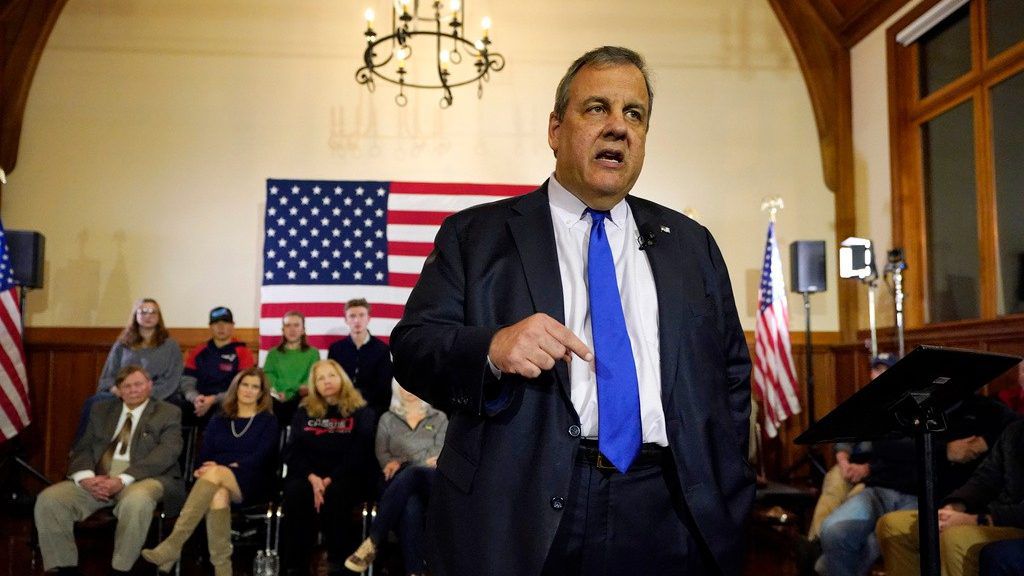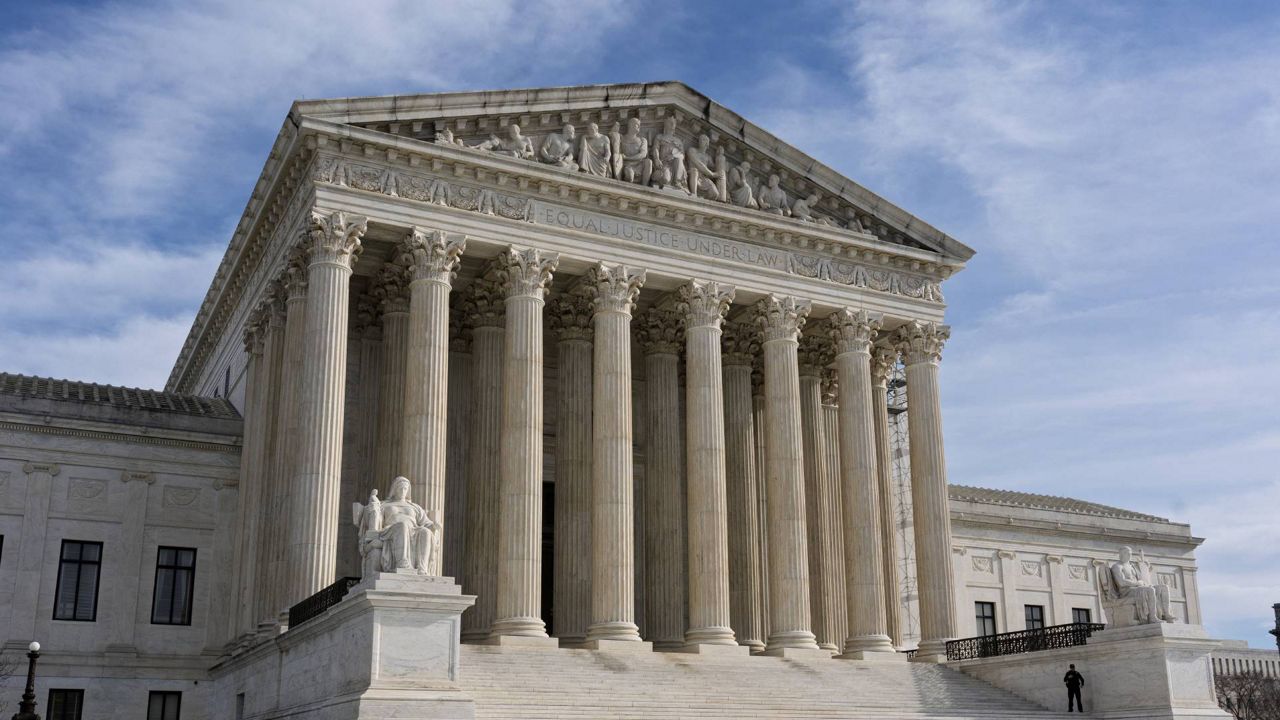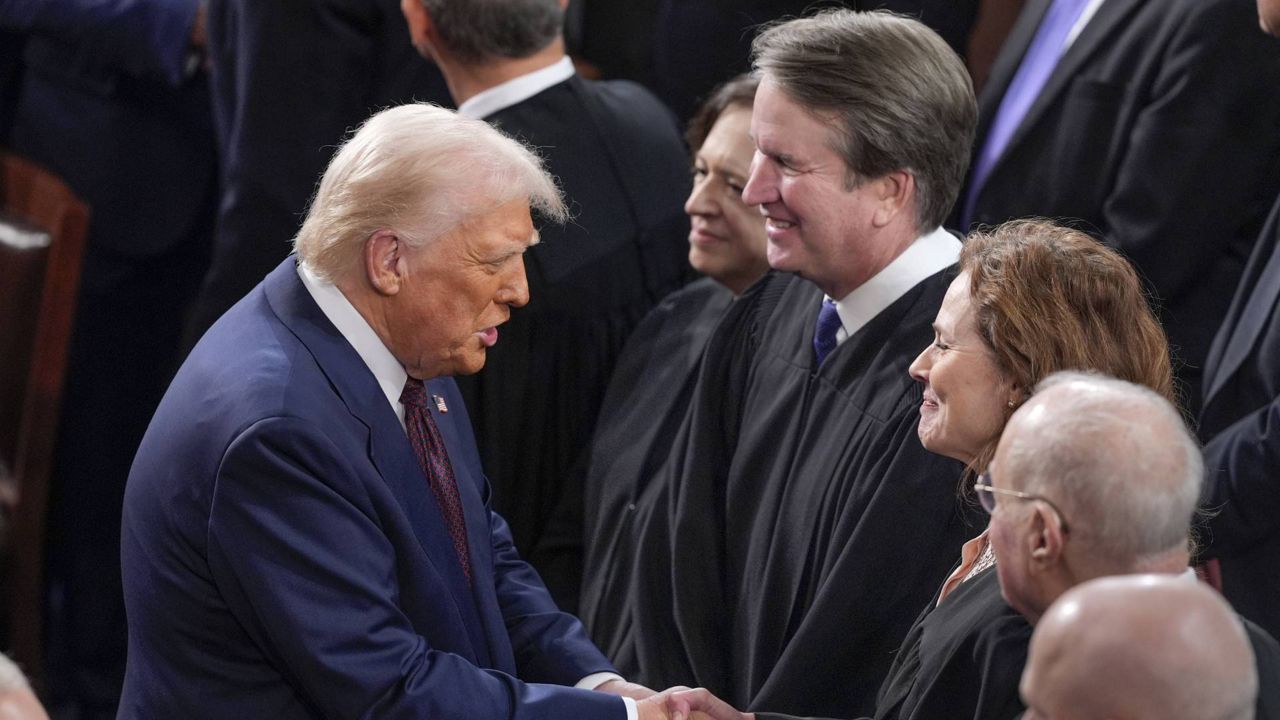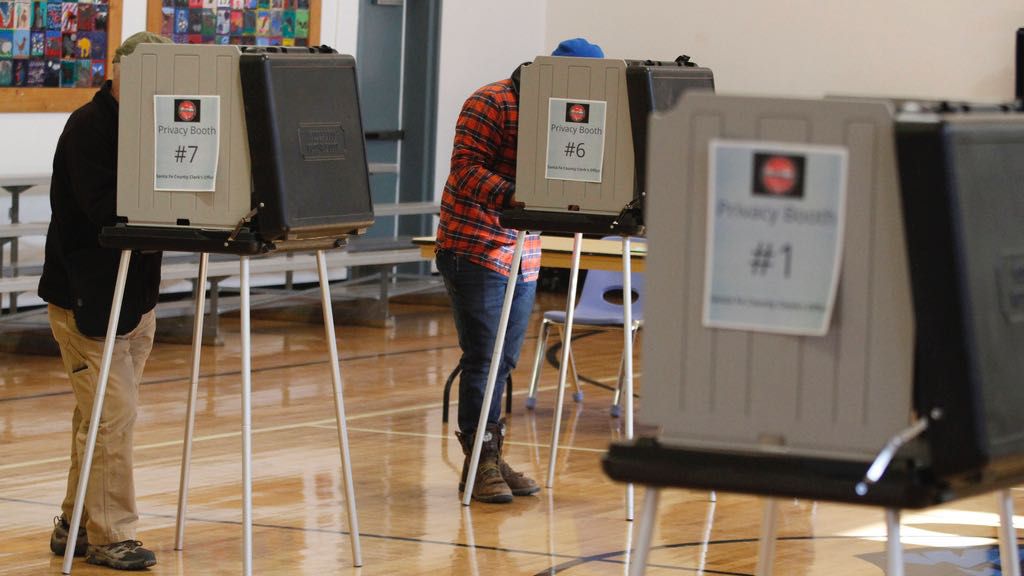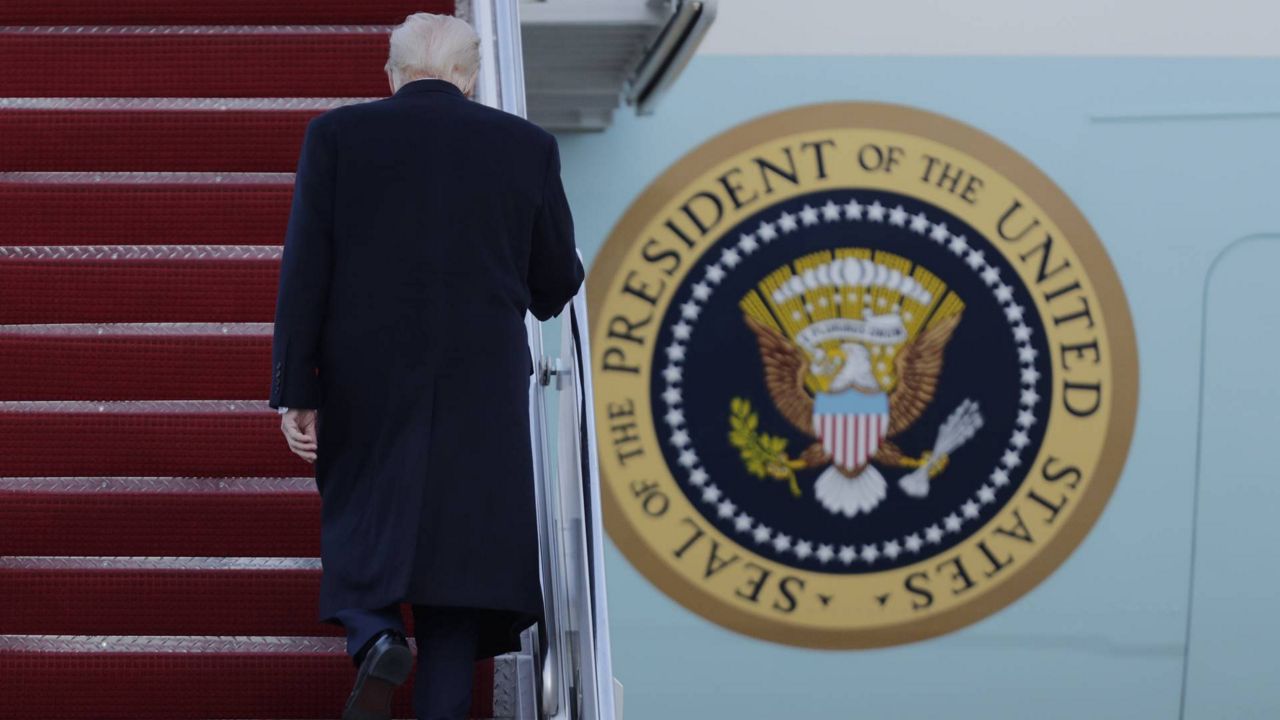Former New Jersey Gov. Chris Christie, who bowed out of the 2024 GOP presidential primary last month, said in an interview that aired on Tuesday that he would consider a third party run and have “a long conversation” with his wife if the group No Labels approached him.
“What I've said in the past is that I'd have to see a path for anybody, not just me. But I think anybody who would accept that would need to see a path to 270 electoral votes,” Christie said on ABC's “Good Morning America" on Tuesday. “If there was ever a time in our lifetime when a third-party candidate could make a difference, I think it's now. The question, though, is what kind of difference.”
Christie, who ran on an anti-Trump platform after working on the former president's 2016 and 2020 campaigns, left the race days before the first-in-the-nation Iowa caucuses. He was polling in a distant fifth there at the time and trailed Donald Trump by around 30 percentage points in New Hampshire, where he had focused much of his time, money and energy.
Some polls taken last summer and fall ranged from Christie running equal to Biden nationally to trailing him by 20 points, but no public polling has tested his general election prowess against Biden or in a three-way race with Trump – the likely Republican nominee – since September.
A majority of Republicans viewed the former New Jersey governor unfavorably before he dropped out and less than a third had a favorable opinion, polling showed. A Quinnipiac poll of registered voters last summer found 32% of Democrats and 24% of independents were favorable towards Christie, while around 50% of each cohort viewed him unfavorably.
And he’s largely been an unpopular figure in U.S. politics for the better part of a decade: he recorded single digits in the Iowa caucuses and New Hampshire primary in 2016 before calling it quits; and New Jersey polls at the end of his tenure as governor in 2017 had his approval rating in the teens.
On Tuesday, he advised Democrats to drop President Joe Biden, who faces only token opposition in the Democratic presidential primary. He argued the 81-year-old president has been slowed by age, a case Trump and former U.N. Ambassador Nikki Haley have been making as they pursue their party’s nomination.
“I just think that Joe Biden is probably the only major Democrat who Donald Trump could beat,” Christie said, adding the reverse was also true in his mind. “I like President Biden personally, always have. But you know, past the sell by date, it's just time.”
Despite his stark opposition to Trump, Christie said he wouldn’t endorse Haley in the primary or vote for Biden in November. He refused to apologize on Tuesday for saying “she’s gonna get smoked” and “she’s not up to this” about Haley on a hot mic moments before he dropped out last month. He said he spoke to Haley the next day and offered no conciliation then either.
“It was a 45 second conversation,” Christie said. “She told me, ‘I know it's a personal decision, get in a race. And it's a tough decision to get out. I heard everything you said last night, including the hot mic. And I said, ‘uh huh.’”
As for the general election, largely blue New Jersey will likely support the president, he explained, so his “vote is not going to matter.” He said he would leave that line on his ballot blank, but added he “might look at” a No Labels candidate if there is one.
No Labels, a bipartisan group, is laying the foundation for an independent unity ticket to run in November by gaining ballot access in as many states as they can. So far, they’ve gotten on the ballot in 13 states and are in the process of fulfilling signature requirements and other prerequisites in 14 others. The goal, the 501(c)(4) political organization’s officials have said, is to get on the ballot in 34 states – with access in the remaining 16 and Washington, D.C., to be achieved after candidates are named for strategic and procedural reasons.
No Labels has set a March 15 deadline to decide if they will offer their ballot lines to a ticket they hope will be made up of one Republican and one Democrat. Sen. Joe Manchin, D-W.v., has also said he would consider running. Former Maryland Gov. Larry Hogan, a Republican, left a No Labels leadership role in December and endorsed Haley in the GOP primary in January, ruling out a third-party run of his own for now.
But Christie left the door open to a No Labels or independent run on Tuesday, arguing if the No Labels candidate was “a strong Republican,” it might hurt Trump more than Biden – which he says is his ultimate goal.
“They have not asked me,” Christie said. “It’d be a long conversation between me and [his wife] Mary Pat. I can guarantee you that.”
No Labels did not immediately return a request for comment.
While Americans are open to a third party candidate – 63% of U.S. adults told Gallup in October they desire a third major party – the current challengers to the status quo are polling poorly against Trump and Biden. Anti-vaccine activist and Kennedy family scion Robert F. Kennedy Jr., arguably the most popular independent candidate in the race, is topping out around 10% in most public polls this year and reaching the high-teens and low-20s in a handful of outlier polls. Manchin, independent progressive Cornel West and perennial Green Party candidate Jill Stein are consistently polling in the single digits.
But while a third-party victory is unprecedented in modern U.S. history, even small percentages could make a difference in November. Some Democrats blamed Stein’s 1% in 2016 for chipping away at Hillary Clinton’s support in key states. Libertarian Gary Johnson, the former governor of New Mexico, earned a little over 3% that year. Third-party candidates got a little under 2% cumulatively in 2020, but Biden won key swing states by just tens of thousands of votes.
Backers of both Trump and Biden have expressed concern about third-party candidates siphoning votes from their candidates. Trump has attacked Kennedy Jr. Democratic opposition research outfit American Bridge has added independent candidates to their portfolio alongside their typical focus on Republicans.
“Chris Christie is giving us whiplash with his newly discovered support of [No Labels] — last summer Christie called their third-party efforts ‘a fool's errand,’” American Bridge posted on social media on Tuesday. Last July, Christie did say that and insisted “there are only two people who will get elected president of the United States: the Republican nominee for president and the Democratic nominee for president.”
“They want to hurt Donald Trump if he’s the nominee,” Christie said then of No LAbels. “But, you know, when you get into a third-party campaign – we saw this with Ross Perot, we saw this later with Ralph Nader – You never quite know who you’re going to hurt in that process.”
On Tuesday, ABC News host George Stephanopolous asked Christie if his mission to keep Trump from the White House will be successful.
“I don't know George, but it won't be for lack of trying. I can guarantee you that,” he said.




